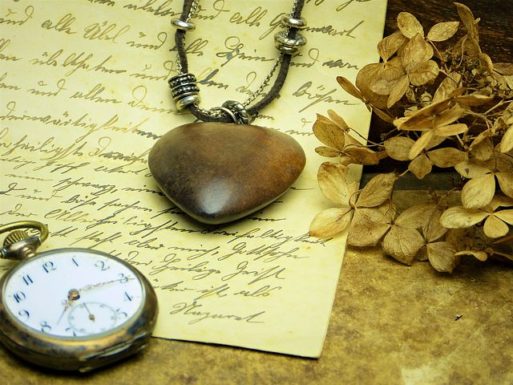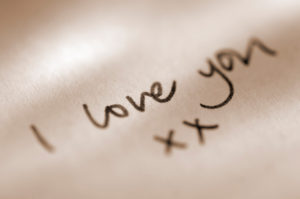
When I was a child, my family was a strong, stoic clan. We valued fierce independence above all else.
Asking for help or seeking recognition was not acceptable.
Neither love nor grief was talked about or expressed.
Any acknowledgment of my academic achievements was housed in a joke or backhanded compliment. Mind you, I knew this jesting was how our family showed we cared, but I wanted more.
My father was accomplished in many areas. He was an author, store owner, expert on American Indian history and arts, political activist, humanitarian, editorial writer, illustrator, humorist and speaker. He set a high bar, but my goal was not only to reach it, but to break down the barriers to expressing love.
So as a 17-year-old high school senior, I came up with a plan.
In truth, it was a plan born more of need than generosity of spirit. But I hoped it would pay off for us all.
When I arrived in college in the fall, far away in Massachusetts, I would write a letter to my father. I would tell him what a role model he was.
I would tell him I was thankful for his support.
I would share my favorite memories of him.
And for the first time, I would tell him I loved him — on a piece of paper.
I wanted him to read it while I was safely a thousand miles away, just in case it didn’t garner the reaction I hoped for. It was a risk, but one I needed to take.
I hoped he would tell me he loved me in return.
But my plan was abruptly derailed on January 3, 1972 — the day my dad committed suicide.
 I fought to understand. But this didn’t make sense.
I fought to understand. But this didn’t make sense.
I recalled the many hours my father spoke with troubled men on the phone, talking them down from drunken misery, dissuading them from their suicidal thoughts and threats.
He told us suicide was selfish and even vengeful.
But my father was selfless, so how could his action make sense?
Once home, I walked numbly into my parent’s bedroom.
I looked up to see my father’s shirt hanging neatly over the chair. Something compelled me to check the pocket. It contained his carefully folded suicide note.
In short sentences he related that the vertigo attacks he suffered from were getting progressively worse and that he was “sorry for the inconvenience” of his action.
He directed that money be given to the university for the study of that “damnably depressing and debilitating disease.”
No signature.
No final message to us.
No, “I love you.”
That was it? My stomach churned.
The paper felt cold in my hand.
I stared at the note for a long time, willing the strength to numb myself to the emotions that threatened to uproot the “Bahti family way of coping.”
I mustered strength to fulfill the expectation of being strong, silent.
Refusing to feel the need. Refusing to feel the pain.
I was a “Bahti”, afterall
I had to carry on my father’s legacy.
And so began my journey to understand and transform this unraveling event, and weave it into the legacy I choose for my own life.
Join me for part two of my story, Transforming the Legacy, next month.
About Tani:
Tani Bahti, RN, CT, CHPN, offers practical guidance to demystify the dying process. A RN since 1976, Tani has been working to empower families and healthcare professionals to enable the best end-of-life experience possible through education and the development of helpful tools and resources. The current Director of Pathways, Tani is also the author of “Dying to Know, Straight Talk About Death and Dying,” a book that SevenPonds considers one of the most helpful books on the subject available today. Founder Suzette Sherman says, “This is the book I will have at the bedside of my dying parents some day, hopefully a very long time from now.”

 When The Legacy is Suicide
When The Legacy is Suicide



 The Spiritual Symbolism of Cardinals
The Spiritual Symbolism of Cardinals
 Meaning-Focused Grief Therapy: Imaginal Dialogues with the Deceased
Meaning-Focused Grief Therapy: Imaginal Dialogues with the Deceased
 Flawed Kidney Function Test Discriminated Against Black Patients
Flawed Kidney Function Test Discriminated Against Black Patients














